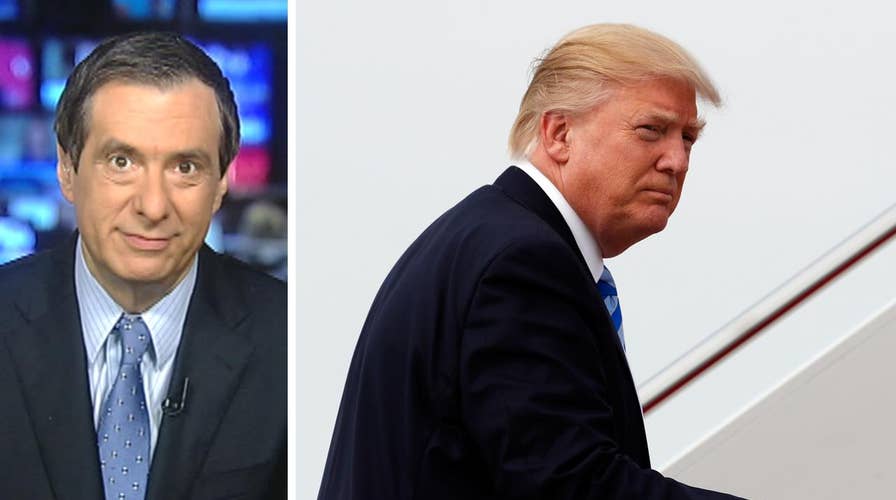Kurtz: Tax reform is treacherous
'Media Buzz' host weighs in on why it comes as no surprise that the Trump administration will not finish tax reform by August
Tax reform may be the most maddeningly complicated Rubik’s cube that Washington tries to solve.
There are so many arcane rules and deductions at stake, so many possible combinations of varying rates for businesses and individuals, so many lobbyists swarming around each provision that it’s the mother of all political headaches. There are untold numbers of winners and losers, and they all fight like hell.
So I barely blinked when the Trump administration let it be known that it wouldn’t be able to meet the goal of passing tax reform by August. It took Ronald Reagan about two years.
But the problem with that timetable is that it may be a long time before the president puts some legislative points on the board, as the upcoming blizzard of 100-day stories will undoubtedly point out.
First, of course, Trump was going to repeal and replace ObamaCare. He may go back at that, but the entire effort seems in limbo.
He has also raised the possibility of combining tax reform with a big infrastructure package, suggesting a sort of grand bargain with Democrats who would trade spending on roads and bridges for some tax-cut formula that would also help the middle class.
The problem, at this point, is that Trump doesn’t have a tax reform bill. So there’s nothing to negotiate with Congress.
Trump’s campaign plan was to slash the corporate tax rate from 35 percent to 15 percent, and lower the top individual rate from 39.6 percent to 33 percent, with fewer brackets.
The president now faces a choice. He can go for straight tax cuts, scrap a few deductions and declare victory, hoping that lower rates are what people care about. (The problem there is blowing up the deficit without offsetting spending cuts.)
Or Trump can tackle a full-blown reform agenda, which would drag on for many months with no guarantee of success.
The New York Times brands tax reform “another faltering campaign promise”:
“It is becoming increasingly unlikely that there will be a simpler system, or even lower tax rates, this time next year. The Trump administration’s tax plan, promised in February, has yet to materialize; a House Republican plan has bogged down, taking as much fire from conservatives as liberals; and on Monday, Treasury Secretary Steven Mnuchin told The Financial Times that the administration’s goal of getting a tax plan signed by August was ‘not realistic at this point.’”
That GOP plan, by the way, includes such controversial measures as a border adjustment tax.
The Times story plays up the Democratic argument that Trump’s refusal to release his own tax returns is an obstacle to reform. That’s a good talking point, but it seems to me if both parties could make a deal in their own self-interest, the Trumpian returns wouldn’t stand in the way.
Still, this paragraph jumped out at me:
“Lawmakers do not want to pass an overhaul of the tax code that unwittingly enriches the commander in chief and his progeny. Those who are worried about conflicts of interest point to the potential repeal of the estate tax or elimination of the alternative minimum tax as provisions that would enrich Mr. Trump.”
The AMT, started by Congress in 1969 after 155 super-wealthy people were found to have paid no tax, now affects several million taxpayers who don’t consider themselves rich. Most of them make less than $200,000 a year. Congress has been grappling with this problem for a very long time.
Would lawmakers really not act on that provision, or others, because it might benefit Donald Trump?
The paradox for the president is that Republicans control the House and Senate as well as the White House. But when it comes to the prickly issue of tax reform, even one party can find itself paralyzed.





